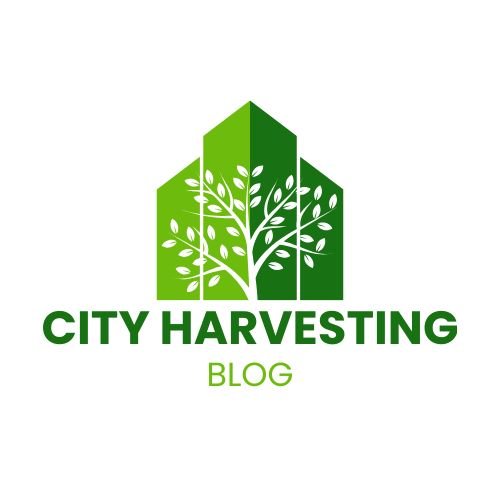You'll find five distinct types of foraging classes to build your wild food knowledge: expert-led plant walks for hands-on identification, seasonal discovery sessions exploring nature's pantry, sustainable harvesting workshops for ethical collection, urban park safety courses covering legal guidelines, and community field practice groups. These classes combine practical skills with local expertise to help you confidently spot and gather edible treasures. Learn more about each unique learning experience below.
Local Expert-Led Plant Identification Walks

A well-guided plant identification walk can transform your foraging journey from guesswork to confidence. When you join local expert-led walks, like those at the Houston Arboretum, you'll learn essential skills for identifying edible wild plants in your area.
Experienced foragers like Mark Merriwether Vorderbruggen teach you to spot five unique features of each plant, helping you differentiate between similar species such as Texas Dandelion and Sow Thistle.
Mastering five key features of each wild plant transforms novice foragers into confident botanists ready to distinguish subtle differences between species.
Through detailed observation and hands-on practice, you'll develop the foraging skills needed to safely explore your local ecosystem.
These walks offer more than just plant identification – they connect you with the diverse flora in your region. You'll gain practical knowledge while developing a deeper appreciation for the natural abundance surrounding you.
Seasonal Wild Edibles Discovery Sessions
Building on these foundational identification skills, Seasonal Wild Edibles Discovery Sessions take you deeper into nature's pantry throughout the year.
You'll learn to spot abundant wild edibles like purslane and wild onions while mastering essential plant identification techniques, focusing on leaf patterns and stem characteristics to safely distinguish edible plants from dangerous lookalikes.
These hands-on experiences connect you directly with local ecosystems as you taste and explore edible plants in their natural habitats.
You'll discover ethical foraging practices, including proper permission protocols for private lands and regulations for public areas.
The sessions also celebrate the cultural significance of foraging, incorporating wisdom from Indigenous communities and local traditions.
Through these immersive foraging classes, you'll gain both practical skills and a rich understanding of your region's natural heritage.
Sustainable Harvesting Skills Workshop

Through hands-on instruction, sustainable harvesting workshops equip you with essential skills to forage responsibly while protecting local ecosystems.
You'll learn proper plant identification techniques and discover how to collect only what you need using sharp tools that minimize damage to vegetation.
These foraging classes emphasize understanding local plant growth cycles and distinguishing between native plants and invasive species.
You'll gain valuable knowledge about removing harmful invasives while preserving indigenous flora.
The workshops also cover vital legal guidelines, teaching you how to obtain proper permissions and follow regulations for public spaces.
Urban Park Safety and Legal Guidelines
Understanding park safety and legal guidelines forms the backbone of responsible foraging in urban areas. In Texas, you'll need property owners' permission before collecting plants in public parks. While roadside foraging for above-ground plants is permitted, you must follow specific limits, like the one-gallon mushroom rule in National Forests.
| Activity | Legal Status | Safety Tips |
|---|---|---|
| Plant Collection | Permission Required | Positive ID Essential |
| Roadside Foraging | Permitted Above-Ground | Use Safe Parking Areas |
| Mushroom Gathering | 1 Gallon Daily Limit | Expert Verification |
Remember to practice sustainable harvesting with sharp tools and maintain environmental preservation by filling holes and removing trash. Your safety depends on accurate plant identification before consumption, especially in urban areas where contamination risks exist. Always document your findings and stay updated on local regulations governing public park foraging.
Community Foraging Field Practice

While classroom learning provides essential foundations, community foraging field practice offers irreplaceable hands-on experience in local parks.
You'll learn to identify edible plants in their natural habitats while mastering sustainable foraging techniques that protect local flora from overharvesting.
Expert instructors will teach you to distinguish between similar-looking plants, ensuring you'll safely select wild edibles like purslane and wild onions during peak seasons.
These foraging classes emphasize practical skills through direct interaction with your environment, allowing you to build confidence in your plant identification abilities.
You'll also connect with fellow foraging enthusiasts, creating opportunities for knowledge exchange about local ecosystems.
This shared experience strengthens your understanding of sustainable food sources while building meaningful connections within your community.
Frequently Asked Questions
What Is the Best Way to Learn to Forage?
You'll learn foraging best by taking local classes with expert instructors, practicing plant identification skills, joining community foraging events, reading guidebooks, and following ethical harvesting principles while gaining hands-on experience outdoors.
What Is the Best Month to Go Foraging?
You'll find the best foraging in Texas during spring and summer months, especially April through July. That's when you'll discover abundant edible plants, tender greens, and ripe berries at their peak.
Is It Legal to Forage in Public Parks?
You can't typically forage in public parks in Texas, as it's prohibited and could result in fines of $500-$2,100. You'll need special permits or permission, depending on the specific location and regulations.
What Is the Golden Rule of Foraging?
You must positively identify any plant before you consume it. This golden rule of foraging is essential for your safety, as misidentification can lead to serious illness or poisoning.
In Summary
You'll gain invaluable knowledge and confidence through these local foraging classes. Whether you're learning plant identification basics or mastering sustainable harvesting techniques, you're building practical skills for urban foraging. Don't forget to share your newfound expertise with fellow enthusiasts and always follow local guidelines. Take that first step – sign up for a class and start exploring nature's pantry in your neighborhood parks.





Leave a Reply